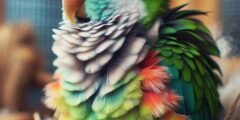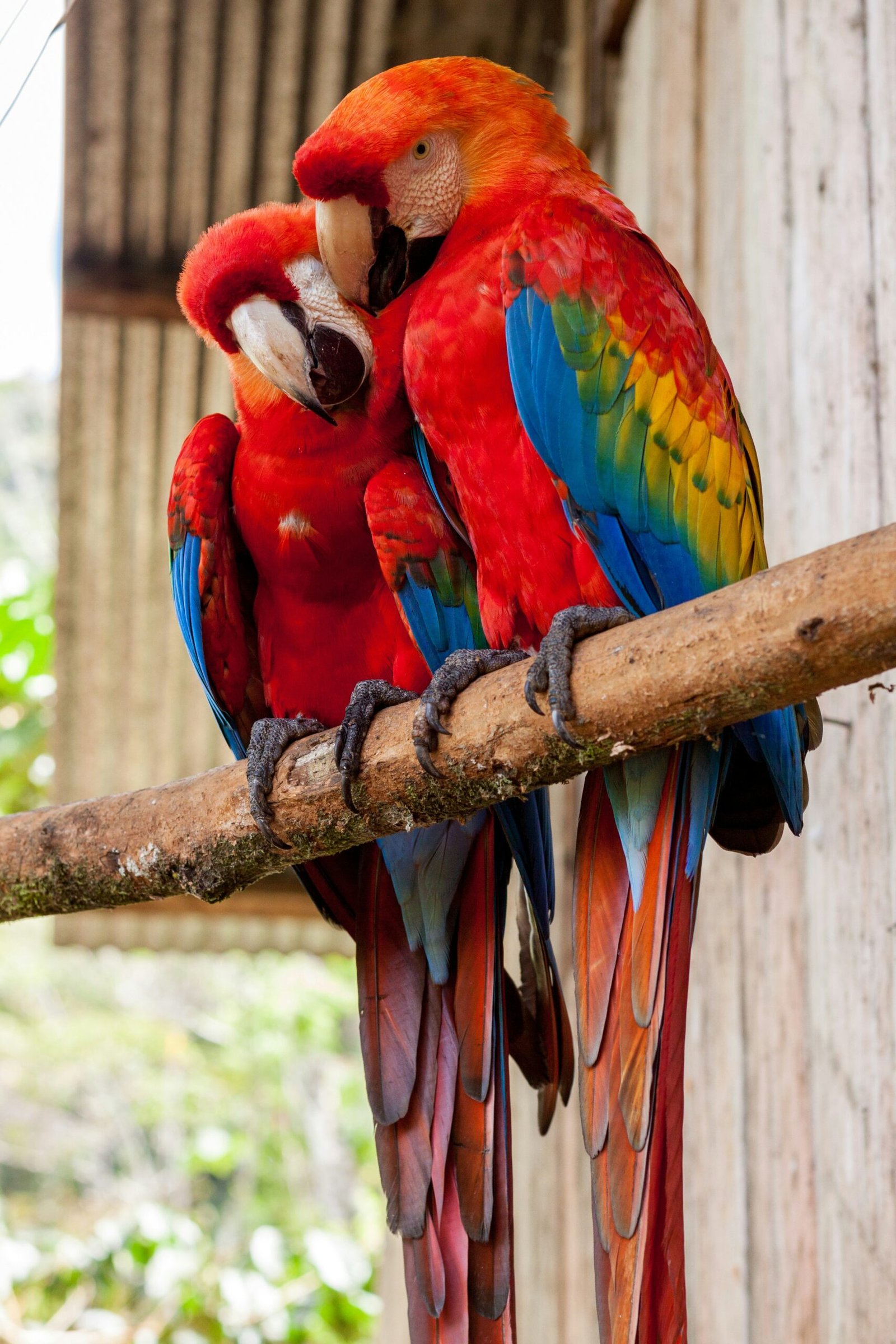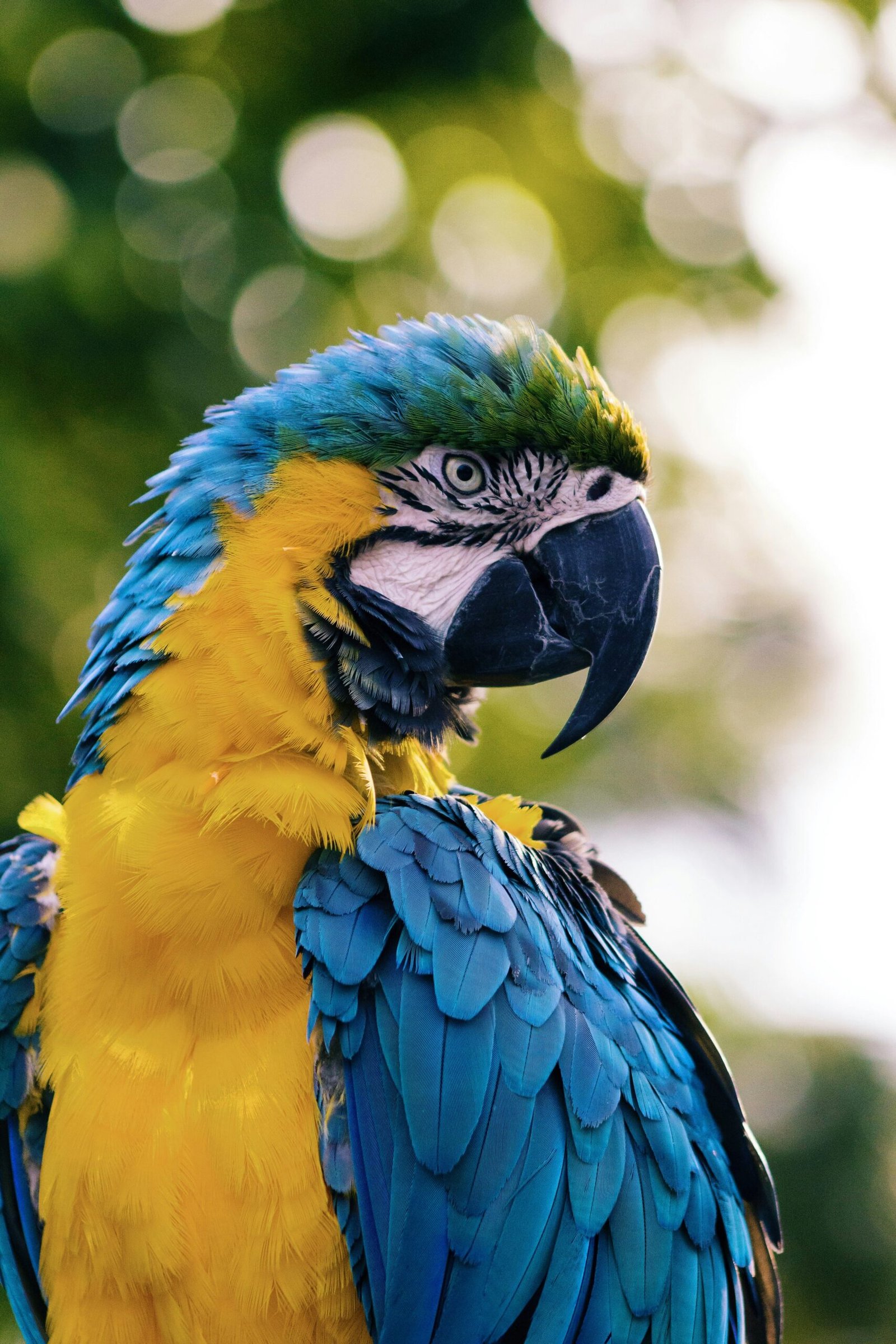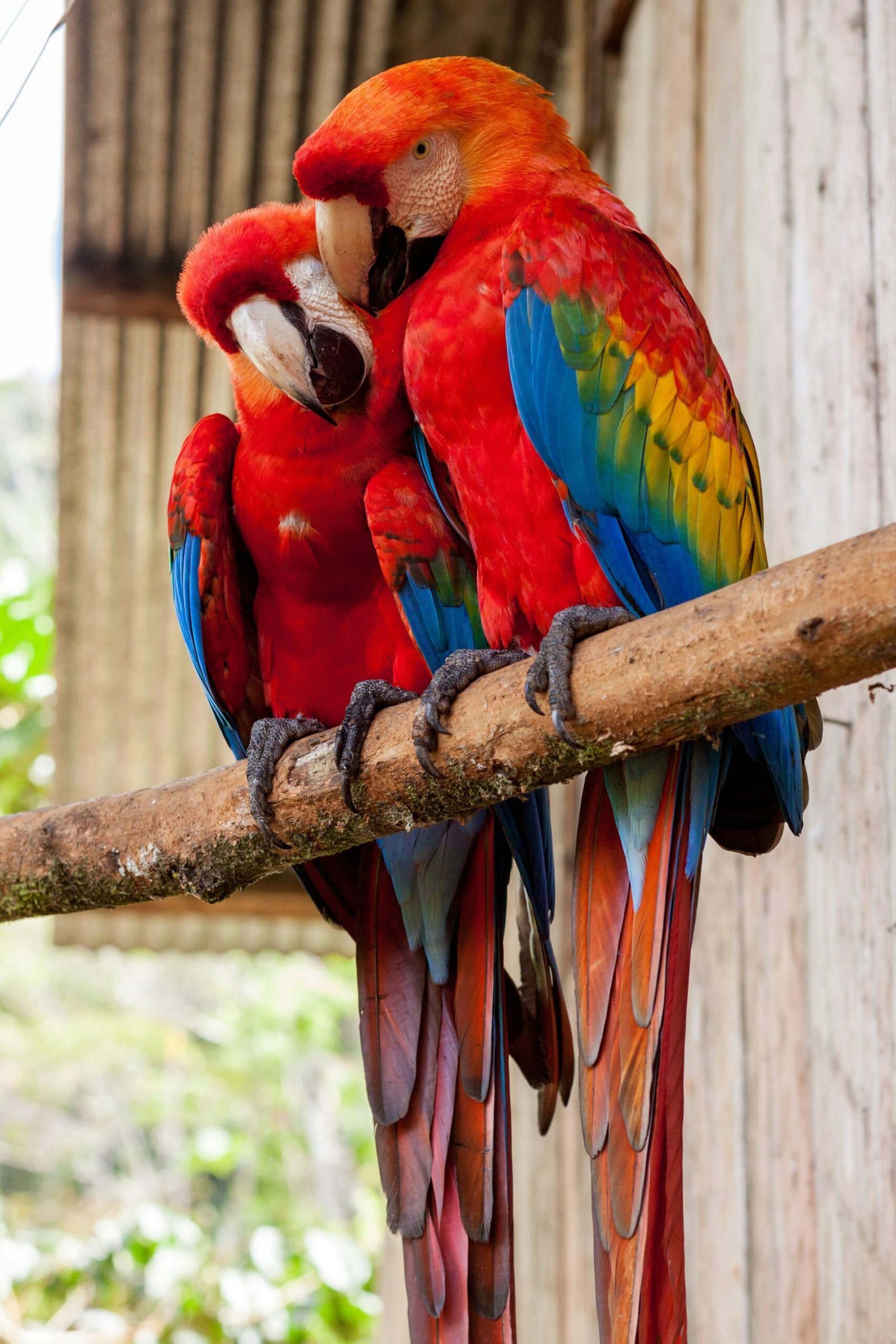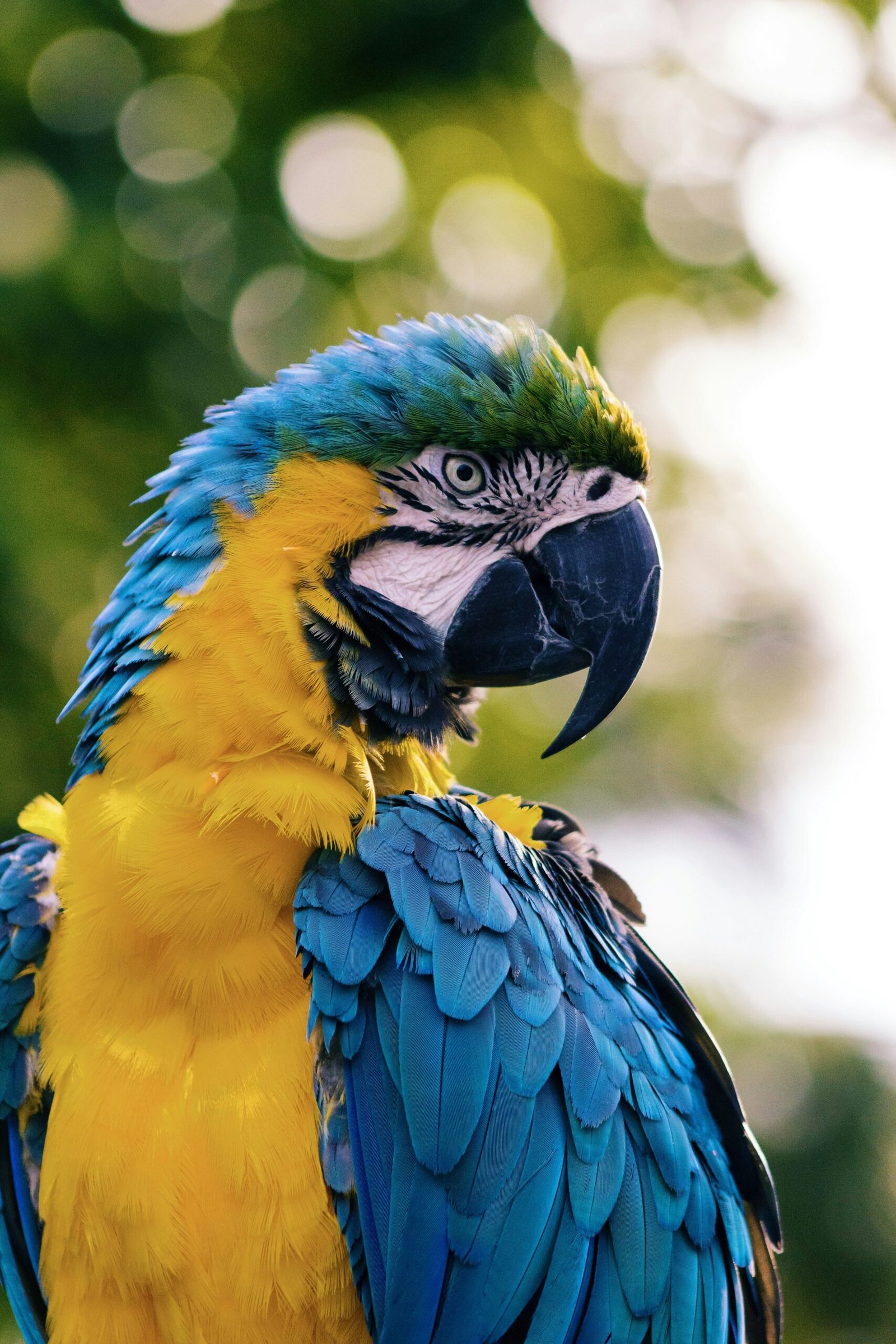With pet ownership ever changing, potential pet owners are thinking more and more about all of the options and not just traditional cats and dogs. In recent years, one such choice that has come under notice is the quaker parrot while ironically known for one of the most vivacious personalities you will find. In the following blog post, I will attempt to create a complete guide of whether a quaker parrot makes a good pet.
The Quaker parrots, or monk parakeets, are well known for being social birds with good intellect. And they have an ability to mimic sounds and speech, which is sort of entertaining, but also makes them lovely companions for those who want a pet that is interactive. These birds are beloved as pets for their charming behaviors and playful antics, but because of their friendly nature, they form strong bonds with their owners that can often be rushed to help anyone with the slightest injury. Because of this, a lot of people want to know what it is like to have a quaker parrot in the household and, therefore, require to learn more about this.
This will not be a post about the happy little guy just because, but rather, about quaker parrot being a trainable bird that requires a lot of attention and commitment to raising. Speaking to these key areas will give potential owners an idea of what to expect when it comes to having a quaker parrot in your home based on their personality, living conditions, space, and so forth. Additionally, knowing what a quaker parrot’s responsibilities and joys are will allow the person to make an informed judgement when deciding to take a quaker parrot as a pet.
In exploring the characteristics, needs and misconceptions involving quaker parrots, we will also provide information on tips for successful quaker parrot ownership. In the end, this extensive guide will be an ideal tool for anyone contemplating their chances of individually owning a quaker parrot, because relevant details will be just a few clicks away.
Overview of Quaker Parrots
Myiopsitta refers to Quaker parrots – monk parakeets – which are native to South America. Indeed, their principal origin is in countries such as Argentina, Paraguay and Bolivia, where they allure in several habitats, including forests, grasslands, as well as in urban areas. The maintenance of feral populations of quaker parrots in many parts of the world, including the United States and Europe, reflects their adaptability, and their ability to coexist with humans.
There are no words to describe how intrigued one is by quaker parrots’ special physical traits. Often small to medium sized, 9 to 11 inches long, birds of bright green plumage with a grayish breast. Sometimes their inquisitive nature shows in their expressive eyes, their robust beaks for cracking seeds and nuts, which makes them a frequent target (for good reason!). Quaker parrots also have a somewhat unusual social life illustrated by their tendency to form large communal nests, all in all a feature of their strong social instincts. That is an excellent quality of being a good pet for people or families willing to interact with them on a social level and this particular quality makes the quaker parrot a good pet.
Quaker parrots are domesticated birds and have become popular among avid bird addicts and novice pet owners. Intelligent, lovely and with a ready load of vocalization, they are a very attractive breed. These loving pets have a remarkable gift to replicate human voice, so they frequently develop strong ties with owners. Besides being interesting socially and having relatively easy care requirements, most are also willing to socialize well with humans, making them popular as a household pet. Taken as a whole, quaker parrots stand out in their tint and personality, making them a surprisingly great collect for pet option and the ideal means to happiness for everything who cares for them.
Understanding Quaker Parrots’ Natural Behavior and Instincts
Quaker parrots are among one of the very birds that possess interestingly behavioral traits and striking plumage characteristics. They count as social birds, and are dependent on flock interaction, be it with other birds or their human caretakers. Since they’re their social nature shines through, so they require a companion and excitement and are suited to a family or person who can commit time with them.
The quaker parrot is one of the defining characteristics of the species due to their inhuman intelligence. Not only do these birds know how to solve problems, they are also fairly curios and will explore their world. Quaker parrots use their an intelligence that teaches them a wide range of tricks and commands and they can be trained to respond to social cues. Cognitive learning helps strengthen their bond with humans, and they are sure to seek out attention and interaction to they can have to enrich their minds which is important for their mental health.
One of the coolest things about quaker parrots is their amazing ability to mimic sounds and include human speech and other form of noises. In the wild this mimicry is a natural instinct to communicate with other flock. This explains why the quaker parrot can be a good pet for those who enjoy social interaction because the quaker parrot is likely to engage you in auditory interaction. Their sounds are anything from whistles to clear speech which is why they are interactive. In essence, then, knowing these inherent behaviors are important for any future quaker parrot owner, because it considerably determines how they will look after a quakers parrots’ needs, and ultimately how they and their bird will live together in harmony.
Lifespan and Size of Quaker Parrots
Notable for their vibrant personalities and unmistakable appearance, Quaker parrots—or Monk parakeets—have proven popular pets, even though they have the unfortunate tendency to produce neither enjoyable nor stately sounds. Knowing the size and lifespan of a Quaker parrot before deciding if one of them would make a good pet is critical. Quaker parrots are typically an adult at about 10 to 12 inches in length which makes them the size of a manageable bird for many living environments. While compact in stature, these birds are not small in spirit and do require room to stretch their wings and get out and exercise and explore.
On average, Quaker parrots have an average lifespan of around 15 to 30 years depending on how well they’re taken care of and in what environment they’re living in. This life span, however, is an incredibly long time to own and requires the care of proper nutrition, regular veterinary check ups, as well as mental stimulation for the animal. Quaker parrots are long-lived birds, and because of that potential owners should consider the commitment of their responsibility before taking a Quaker into their homes.
In addition, it is important to note that Quaker parrots do quite well in an interesting environment. As with most animal species, owners must spend time practicing socialization with their pet in this species. From their physically active, psychologically engaged playtime to mental challenges, socialization opportunities play a role in bird’s physical and psychological health all through their lives. Caring for a Quaker parrot involves the commitment of the time, effort, and resources necessary to properly raise and care for the bird, but for Quakers — as for any pet — that means so much more than simply feeding, grooming and keeping their cage clean.
Vocalizations
As well as their brilliant green plumage, quaker parrots are notorious for their excellent vocal abilities. The quaker parrot makes a good pet precisely due to its ability to mimic human speech. They are impressive vocal range birds which can mimic a lot of sounds, including human words, phrases and even household noises. Quaker parrots display intelligence and sociability, because many owners say their quakers quickly latch on to words they hear often.
But quaker parrots don’t simply mimic—although their vocalizations go beyond mimicry. These species are recognized for their vocal enthusiasm, which very commonly manifests as loud calls and chatter. On occasion their volume of vocalization can be a problem for prospective owners. Quaker parrots were known to communicate in exuberance and they can get really noisy. This vocal tendency can really set up the dynamic of the household, especially in settings where a lot of loud noise could develop disturbances or create disagreement with the neighbors.
But prospective owners need to think about their quakers vocal habits and how those will suit their lifestyle. Some like this being around such a talkative companion and there are a lot of people who like talking to their birds. However, those who are looked upon to have a quieter household may find the bird’s vocalizations overwhelming. In order to decide whether quaker parrot are a proper pet, it is important to know the nature of quaker parrot vocalizations. Like any pet, one must always look at the environment in a manner that is cohesive with natural behavior of the pet and those that care for it.
Benefits of Owning a Quaker Parrot
At times, the quaker parrot — also known as monk parakeet — is considered to be a remarkably wonderful companion to keep due to its engaging personality and social personality. The chief good of owning a quaker parrot is the society in it. Since these birds form such strong bonds with their owners, they can actually form an emotional connection with it, one which often can be rewarding. The sociable nature of the GRIFFON DOG would thrive with more interaction so they will often go looking for an opportunity to spend time with their human family members.
Quaker parrots are especially bright creatures and in addition to their companionship. Learning to mimic human speech and chat with humans is possible; it can actually become a delightful exchange of words and phrases with their owners. One of the amazing things about this intelligence is that it not only makes them learn tricks and commands, it works to stimulate their cognitive skills. Having a pet is always rewarding but keeping them engaged in activities that challenge their intellect can provide a more enriched and fulfilled pet experience.
Quaker parrots are also trainable. Positive reinforcement methods work for these birds, and can also make training sessions fun and effective. A reasonably well trained quaker parrot can do quite a few tricks, which makes the bond between the owner and bird even stronger. Because they want to learn so badly, their eagerness to befriend makes for a playful and engaging pet experience for anyone who loves learning by ‘hands on.’
Quaker parrots are known to be playful. Great little birds, full of energy and curious, that can end up keeping their owners in endless amusement. And can have such a playfulness that can brighten any home and keep a lively atmosphere. The quaker parrot makes for a good family companion and can make you feel smart, fun and joyful.
Challenges of Owning a Quaker Parrot
Companion Quaker parrots may be charming, but dealing with their breeding challenges will require considerable effort on the part of potential owners. Another big concern is the noise level. Like most parrots, Quaker parrots are very vocal and sometimes can be very loud. Their squawking can have impressive decibel levels, generating complaints from neighbors and taming your household environment. Excessive noise becomes a source of stress both to the bird and its companions, so this aspect of ownership will need to be prepared for by prospective owners.
The issue here is the tendency for destructive behaviour. Quaker parrots are actually very curious birds and their beaks are strong enough to chew through many things. Furniture, even electrical cords and walls can get caught in this behavior. And so is furnishing the play space with suitable toys and activities to use the energy. Owners need to be planning to spend on durable bird toys and take steps to minimize destruction by providing a safe and stimulating environment that meets their species’ natural behaviors.
Nothing can be understated about the commitment of time needed to care for and socialize a Quaker parrot. These are highly social birds, social creatures and as such they rely on interaction with their human companions. Daily engagement is necessary to avoid behavioural problems like aggression or excessive screening. And owners need to include regular playtime and training sessions plus networked social convenience. Loneliness and stress are the consequences that can be a result of lack of attention that not only make the bird ill, but also add another burden for the bird’s owner. And, therefore, these responsibilities are the ones you need to learn before deciding if a Quaker parrot would be a good pet for you.
Care Requirements
Some care requirements must be met to keep Quaker parrots as pets: These are birds of the playful personality and a big repertoire of babble which can be imitated. To be sure if a quaker parrot is a good pet choice for your household, you need to understand what these needs are.
It is important at the very first, housing. Quaker parrots need spacious cage to be move around freely. The minimum cage size is 24 inches by 24 inches by 36 inches, but bigger is always better. The cage should have horizontal bars for climbing and a selection of various thickness perches for foot health. They are an intelligent bird, and will become bored easily, so it is important to provide toys and foraging materials.
A quaker parrot is very health if their diet is good. So it should include high quality pellets, and a blend of fresh fruits and vegetables. About 60 to 70 percent of their diet should be in the form of pellets and fruits and vegetables can be healthy treats in moderation. Don’t feed them high fat or high sugar foods, this can result in the kind of obesity and health problems.
Another nice aspect of quaker parrot care is grooming. They need to get their nails trimmed regularly, because long nails are uncomfortable and it’s hard to perch. Feather health need not be compromised by bathing; a shallow dish of water or misting with a spray bottle can be all that is required.
Finally, a quaker parrot’s health depends on regular veterinary care. A few routine check ups will help them keep healthy and watch out for any potential problems early. If owners follow these care requirements of their quaker parrot they will create an environment in which their parrot can flourish.
Training and Socialization
The entire well-being of a quaker parrot is dependent on training and socialization. They are naturally social birds that predators have helped to teach them to thrive on social environments where they can interact with one another and have their mind stimulated. Fundamentally, the best training methods for a quaker parrot are with positive reinforcement techniques. Using this method, we sooo, we used treats, praise, and affection, allowing the bird to know and reward behaviors to continue to do that in the future. This reinforcement not only strengthens the Parrot in obedience, but also strengthens the bond of a Parrot with its owner, so we can say that the Quaker Parrot is a good pet for a family that can spend time training.
Quaker parrots also need socialization. However, introducing them to many people, different, environments and experiences sets them up for a happy submissive pet. Quakers like to begin socialisation early in their lives, gentle socialisation to newpeople and new situations can make them more adaptable and comfortable when indifferent situations. The socialization process can also include other family members in the bonding process with the bird becoming one bonded to all, not just one person. This aspect in training is crucial because it helps enhance the quaker parrot’s capacity to socialize nicely with others reaffirming his/her status as very cute-bodied companions.
Owners should also be aware of common behavioral issues owners with quaker parrots may face such as quaker parrots nipping off and quaker parrots screaming. To solve these issues, you need consistent training and to have a pretty good idea of the bird’s body language. Often it is good to redirect negative behaviors to appropriate outlets, such as toys. For a quaker parrot, training sessions should be short and enjoyable in order to maintain the pet’s naturally curious disposition, all while reinforcing the good qualities they are naturally drawn to. To conclude, they both are well trained, effectively socialized and are a good pet for people who wish to take care of theirs properly.
Are Quaker Parrots Right for You?
If you’re contemplating getting yourself a quaker parrot as a pet, you need to ask yourself how similar these birds would be to your way of life, taste, and limitations. Quaker parrots are a social and vibrant parrot which require a lot of time and energy spent on them. This means then individuals or families with a busy life might not have enough time to spend with the quaker parrot. Social birds are these birds and they thrive on social interaction; if they don’t have the interaction regularly, they get bored or got the behavioral issues.
Additionally, your living space should be taken into account by prospective owners. Being intelligent and lively, quaker parrots need lots of space to play and to explore and a spacious environment. Smaller homes can support a quaker parrot, but it is best to house the bird inside of a cage that will meet the bird’s requirements and daily exercise. For those with limited living space, this might be a good species to reevaluate for.
Research is necessary before making the decision. Prevents future challenges in caring for a quaker parrot by practicing with an informed outlook on what those responsibilities are: diet, grooming, health care. If you decide to bring one of these birds into your home, you can’t expect her to live for her whole life in just one place. Quaker parrots can live for over 20 years. The key here is to know what they need socially, and what type of owner they’re likely to do well with.
If you intend to invest your time and energy into learning and befriend the quaker parrot’s life and want a spacious and engaging environment to introduce it in and willing to provide then you can choose of these colorful birds for your companionship and joy. Learning about owning a quaker parrot and what curveballs they might throw, will give you insight as to whether or not it suits your current life style, family dynamic.
Conclusion
Quite a few things must be considered when evaluating whether or not a quaker parrot is a good pet. Quakers’ personality traits are its first plus. These birds are a bundle of energy and are playful and social birds, which make them a lively addition in the home. Boredom is rare with these dogs, they practice cuddling close to their human companions and even show affectionate behaviors so people and families are drawn to these dogs, perhaps being the desirable pet.
On top of this, quaker parrots are extremely intelligent. That’s not to mention they can learn tricks and even mimic the human speech that makes them so appealing. While this is intelligence, it also is a two edged sword; these birds need mental stimulation and social interaction to stay content and not bored. They (quaker parrots) want owners to spend time with them, but they need to do so in the right ways, otherwise they bring bad qualities into a disappointed and mentally unbalanced pet.
Challenges to quaker parrot ownership also come with potential. If your home is quieter, you may find their vocalizations to be disruptive. They also need a huge time and effort commitment, and their social needs are very high. If prospective pet owners can afford to meet these demands, they should consider that before taking ownership of a pet.
Quaker parrots can make fantastic pets, feeling affectionate and brilliant; however, they aren’t a suitable choice for every home. Potentially owning a ferret is something that needs to be evaluated as to where the ferret is going to live, the ferrets lifestyle, as well as the ability to give them the love and care they need. They reward the effort if you are ready to take on the job, and if you are ready to accept whatever life throws at you when you become a quaker parrot owner.

